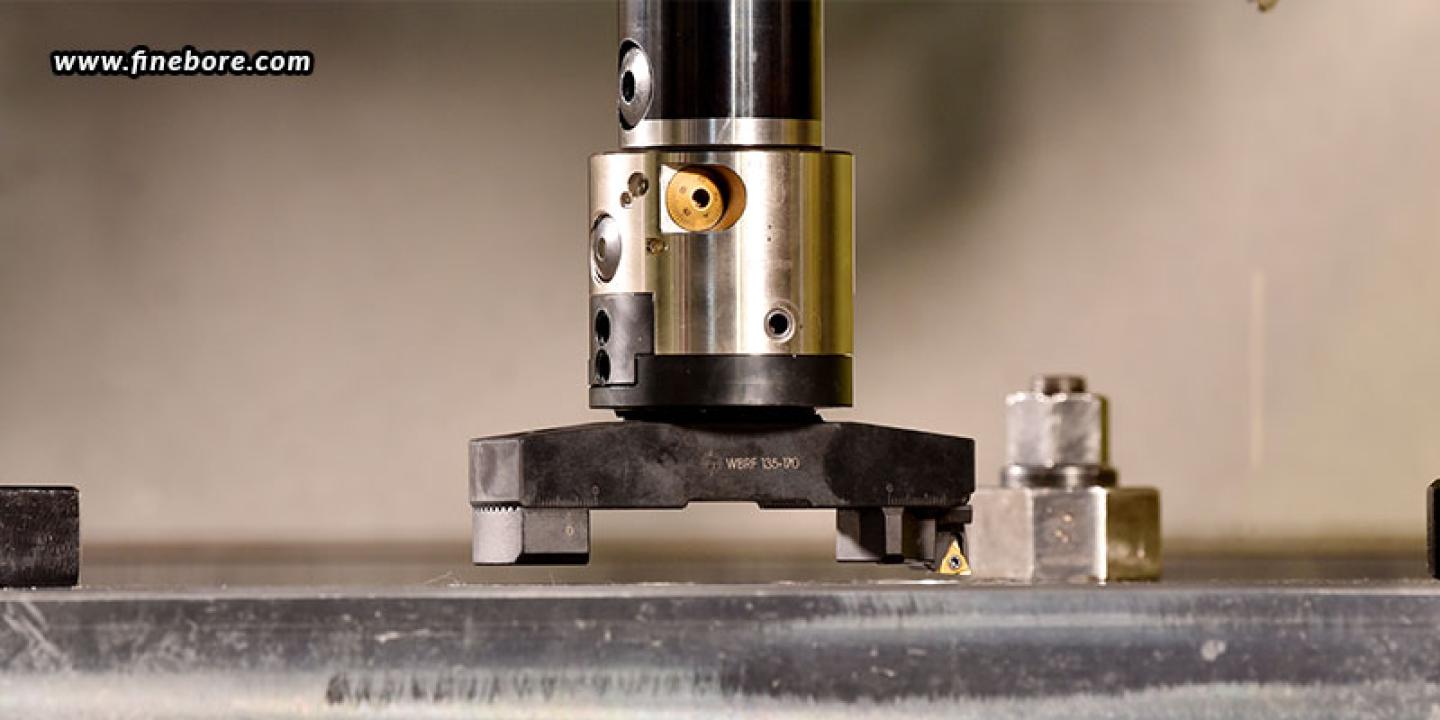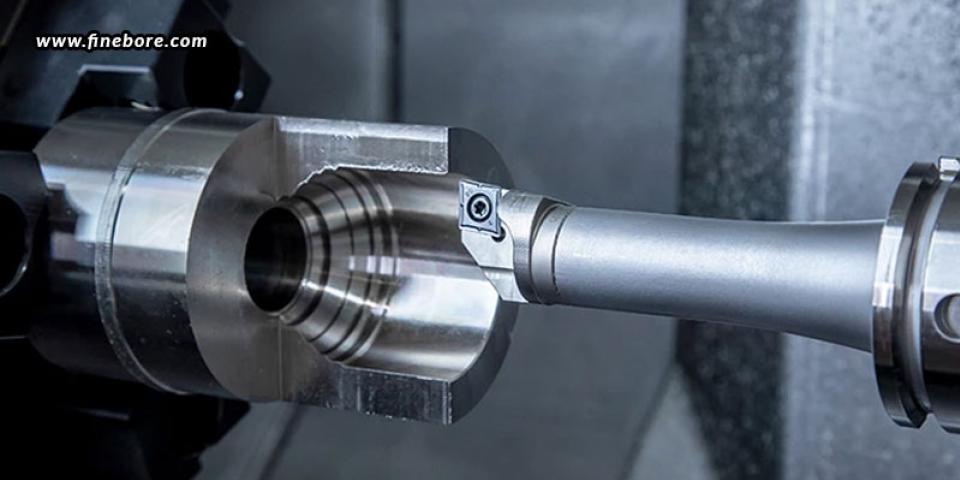Sustainability is now a major issue in manufacturing as well as other industries. Manufacturers are searching for methods to integrate sustainable practices into their operations as a result of growing awareness of the effects on the environment and the need to cut down on waste. The contribution of boring bars to the development of more environmentally friendly production techniques is one of the frequently disregarded facets of sustainability in precision manufacturing. Boring bars minimize waste through precise cutting and longer tool life in addition to optimizing efficiency and preserving materials. Furthermore, environmentally friendly developments in the manufacture and application of these tools might help achieve sustainability goals. Let's examine in the blog below the ways in which boring bars support environmentally responsible production methods, such as their contribution to waste reduction, material conservation, and how eco-friendly practices in tool production align with long-term sustainability goals.
The role of boring bars in material conservation
Boring bars are precision tools used in machining or metalworking operations to increase the size of holes in a workpiece. Their capacity to create accurate holes with minimal error is essential for cutting down on material waste, which is a major component of sustainable production. Boring bars help save part wastage and the requirement for extra raw materials by minimizing overcuts, which occur when more material is removed than is necessary. In line with sustainability objectives, this results in fewer rejected parts and lower material usage per project. Boring bars enable the effective use of raw materials in industries where precise tolerances are essential, such as aerospace, automotive, and medical manufacturing. This minimizes the energy and resources required to produce new workpieces and maximizes the utility of each material input.
Waste reduction through extended tool life
By prolonging tool life, cutting waste, and reducing the environmental effect of frequent tool replacements, boring bars support sustainable production. High-performance materials like carbide, ceramic, and coated metals are used to make contemporary boring bars, which provide improved durability and wear resistance, and lessen the need for frequent replacements. This reduces the environmental impact of tool production and disposal in addition to lowering tool costs. Many boring bars may also be repaired and used, which increases their longevity and lowers the amount of raw materials consumed. Recycling these tools at the end of their life cycle contributes to reducing the environmental effect of mining and extraction operations, which is consistent with the goals for sustainability.
Eco-friendly innovations in boring bar production
Boring bar manufacturers are adopting environmentally friendly technologies in both production and usage as sustainability becomes an important concern. The production of boring bars is having a less negative environmental impact thanks to sustainable manufacturing techniques like employing energy-efficient equipment, waste-reduction strategies, and procuring recycled or ethically produced raw materials. The production process is made more sustainable by using lean manufacturing practices, which also maximize efficiency and reduce waste. Furthermore, new developments in eco-friendly coatings, such as diamond-like carbon (DLC) coatings, are prolonging tool life and lowering the frequency of reapplications. Because these coatings use less energy and fewer harmful chemicals, they help create a more environmentally friendly production environment.
Best practices for sustainable boring bar usage
Sustainable machining using boring bars beyond manufacturing involves innovative usage techniques that minimize environmental impact while optimizing productivity. By using eco-friendly coolant techniques, smart tool management, and optimized machining processes that promote resource conservation and operational efficiency, manufacturers may strengthen their commitment to sustainability.
· Effective machining techniques: Boring processes are changing as a result of sustainable machining techniques including minimal quantity lubrication (MQL) and high-speed machining. High-speed machining speeds up the removal of material, which cuts down on emissions, power consumption, and cycle times. MQL reduces waste by concentrating lubrication where it is most needed, limiting coolant to a precise, minimal amount delivered directly to the cutting edge. These creative approaches support sustainability goals by increasing production while simultaneously conserving energy and fluids.
· Proactive tool management: Manufacturers can precisely forecast tool life, prevent premature replacements, and monitor boring bar wear by putting in place a proactive tool management system. This technology results in a leaner, more environmentally friendly production process by minimizing downtime and reducing the consumption of resources. Manufacturers embrace a circular approach to tooling while conserving raw materials and minimizing waste by extending the useable life of each boring bar.
· Reducing coolant wastage: Although coolant is necessary for boring operations, conventional systems can be costly and harmful to the environment. Utilizing biodegradable coolants and putting recycling systems in place reduces the impact on the environment and lowers the expenses related to coolant replacement and disposal. Manufacturers may drastically reduce waste, lessen their influence on the environment, and maintain environmentally conscious machining by incorporating closed-loop systems for coolant recycling. This emphasis on ecologically appropriate coolant management strengthens a dedication to more environmentally friendly production methods, making every boring operation as effective as possible.
Custom boring bars for sustainable solutions
Standard boring bars are frequently not the most environmentally friendly choice for certain kinds of applications. For certain machining requirements, custom boring bars can provide more effective and sustainable solutions. Manufacturers can reduce the environmental effect of their operations, increase productivity, and cut waste by customizing boring bars to the particular requirements of a project. For instance, tailored boring bars with optimized geometry and sustainable materials can lower material wastage and enhance overall machining performance in industries like aerospace and medical device manufacturing. Manufacturers may achieve accuracy while reducing their operational environmental impact with the help of these customized solutions.
To sum up, boring bars are essential to sustainable manufacturing as they contribute to preserving materials, cut down on waste, and promote environmentally responsible methods of tool manufacture and usage. Without compromising effectiveness or performance, boring bars can assist manufacturers in aligning their operations with sustainability goals through advancements in tool materials, coatings, and machining techniques. Manufacturers may significantly reduce their impact on the environment by choosing premium boring bars, reconditioning tools, implementing sustainable machining techniques, and investigating custom tool solutions. Precision tools like boring bars will only become more significant as companies continue to place a higher priority on sustainability, making them a crucial component of the shift to more environmentally friendly manufacturing. To achieve such sustainable manufacturing goals, partnering with industry experts is key. FineTech Toolings, as leading precision boring bars manufacturers in Bangalore, provides high-quality, customized boring solutions designed to enhance both efficiency and environmental responsibility in machining operations.
Resource: Read more









